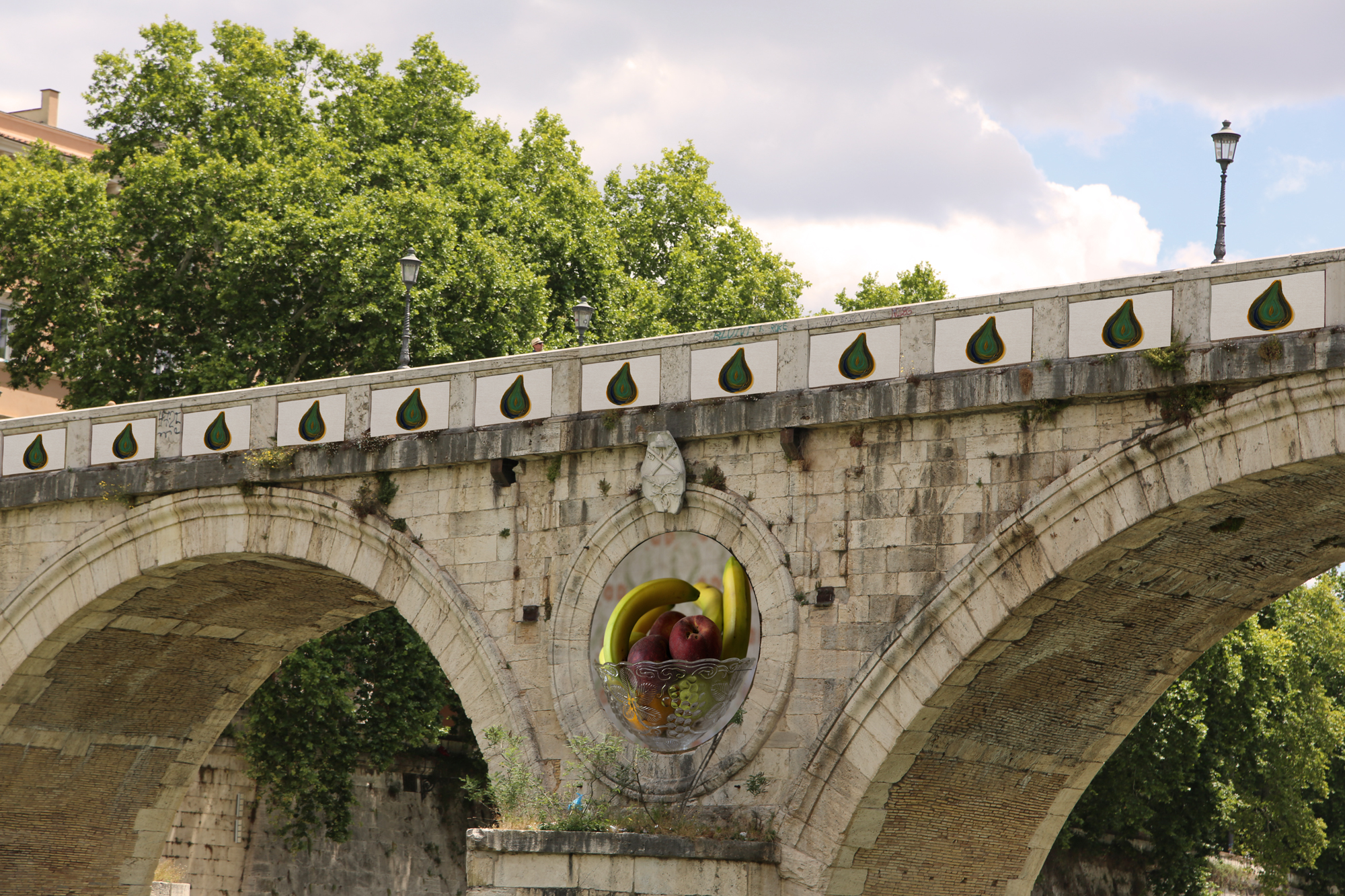Lanfranco Aceti’s The Crocodile’s Flight continues his ambitious four-part series exploring the environmental and cultural crises of our time. Following A River of Crocodile Tears, The Home of the Crocodile, and The Crocodile’s Lament, this last chapter focuses on the Tiber River symbolisms, transforming it into a site of memory, resistance, and renewal.
In collaboration with Tevereterno, IPER Festival delle Periferie, and the Museo delle Periferie, under the aegis of Azienda Speciale Palaexpo, Aceti critiques the retreat from the symbolic and historical interpretations of our cultural inheritances.
The Crocodile’s Flight is an interdisciplinary artistic installation that merges ecological symbolism, mythological narrative, and contemporary political critique. This project continues Aceti’s exploration of the crocodile as a metaphorical and ecological entity, an embodiment of resilience, transformation, and fluid identity. The artwork envisions the crocodile taking flight—freeing itself from terrestrial constraints to soar through the skies, defying human-imposed systems of control and exploitation. The installation creates a dialogue between natural elements and human-made artifacts, highlighting the tension between conservation and destruction.
Drawing inspiration from the historical and symbolic imagery of the crocodile—as an apex predator and guardian of waterways—the installation reimagines it as a figure of liberation and resistance within the millennia-old history of the Tiber. By transcending its terrestrial habitat, the crocodile becomes a universal emblem of carnivorous freedom, capable of challenging anthropocentric hierarchies and proposing a renewed understanding of coexistence with the natural world.
The work critically examines humanity’s dual role as both destroyer and potential savior of ecosystems, inviting the audience to reflect on cultural narratives tied to river waters that favor human dominance at the expense of ecological balance.
For further reading, explore the artist’s research essay, A Trans Called Tiber: From Nazi-Fascism and Digital Amnesia to Misinterpretations of Gender Theory.
The artist acknowledges the support of the Museo delle Periferie.
With thanks to Giorgio de Finis and Linda Mazzoleni.

